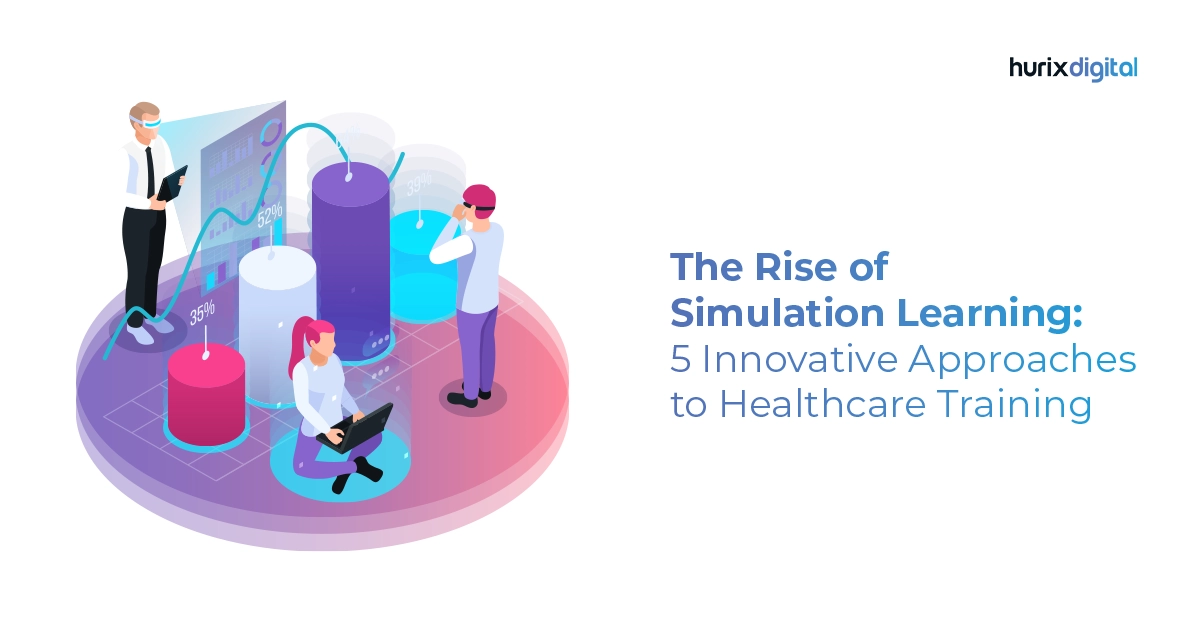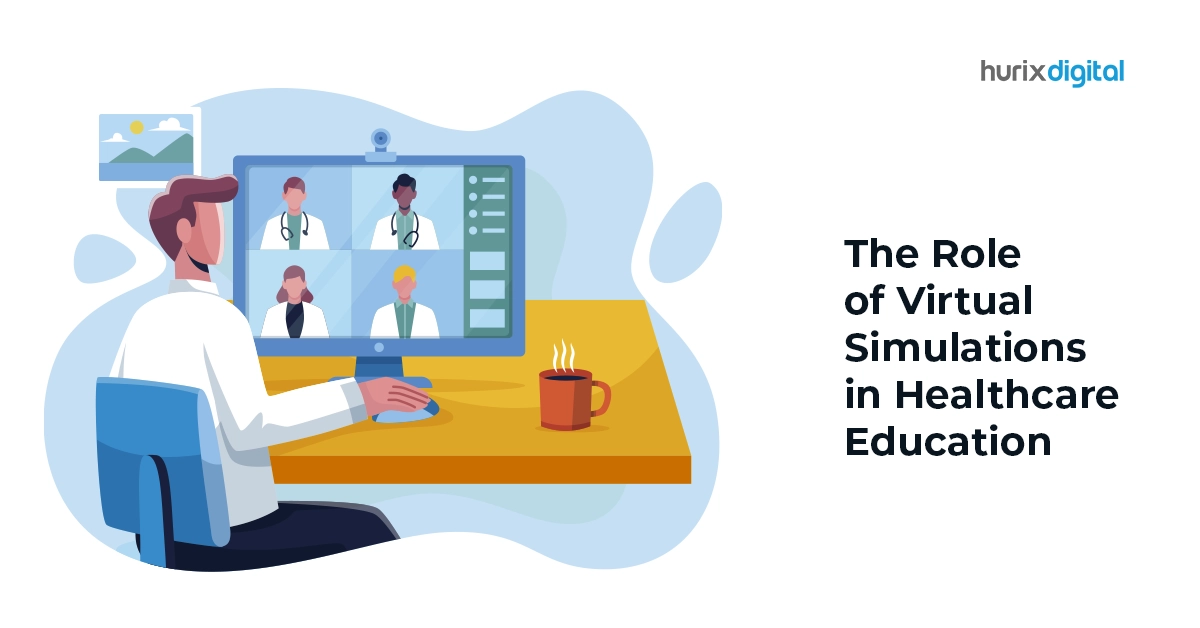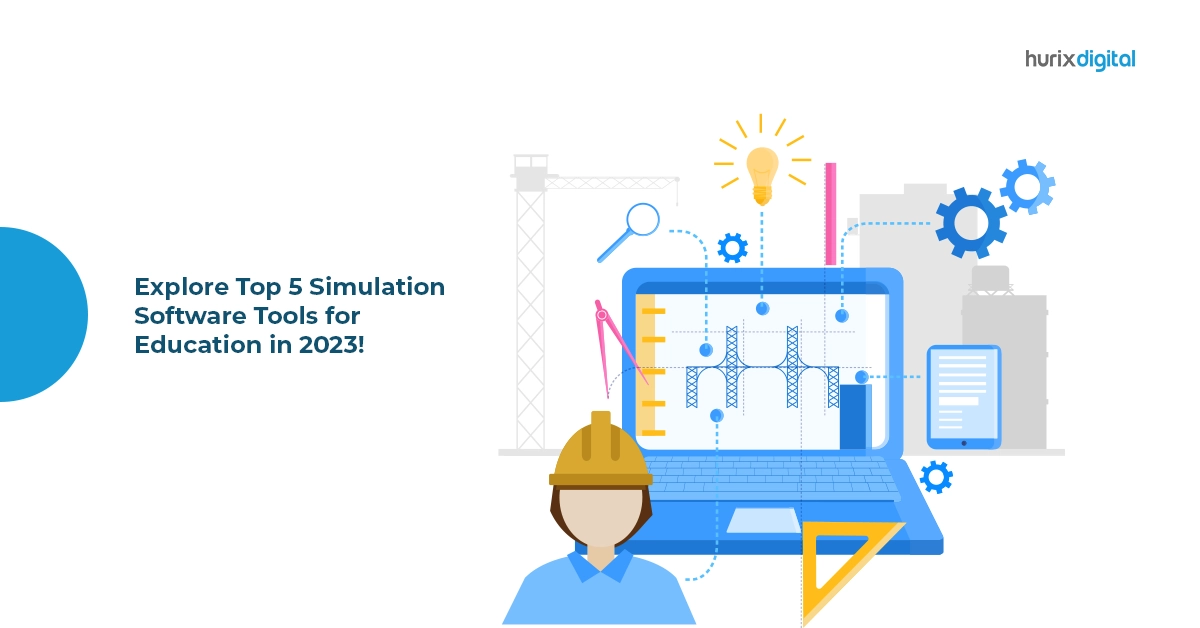The advent of simulation learning has rapidly revolutionized the field of education, specifically healthcare training, through realistic training experiences.
Studies from the Journal of Education and Health Promotion have examined simulation outcomes related to skills and found that 55% were significantly improved. Around 30% of the included studies examined attitude and knowledge, with the result for all showing the positive effects of simulation-based learning.
The demand for skilled professionals is ever-increasing in the dynamic field of healthcare, which makes the impact of healthcare simulation training all the more important. This method of education goes way beyond traditional classroom education by providing a simulated environment that mirrors real-world scenarios in a controlled setting.
This article explores the innovative approaches shaping healthcare training, such as Virtual Patient Simulations and Gamified Healthcare Training.
Table of Contents:
- What is Simulation Learning in Healthcare?
- What are the 5 Innovative Approaches to Healthcare Training?
- What are the 4 Benefits of Simulation Learning?
- Conclusion
What is Simulation Learning in Healthcare?
Simulation learning refers to the use of technology to replicate real-world clinical situations. In healthcare education, this method has become integral to providing a safe environment for students to learn and refine their skills before interacting with real patients.
The utilization of simulation-based learning in healthcare education has seen a substantial increase due to its efficacy in bridging the gap between theoretical knowledge and practical experience.
This approach to learning expands on the skillsets of healthcare professionals and contributes to an ultimately safer environment for both professionals and patients.
Also Read: Simulation Training: The Future of Healthcare Professional Development
What are the 5 Innovative Approaches to Healthcare Training?
In the ever-evolving realm of healthcare, novel approaches are reshaping the way professionals are trained. Let’s delve into some of the groundbreaking innovations:
1. Virtual Patient Simulations
Beyond traditional training methods, virtual patient simulations provide realism and offer healthcare professionals the opportunity to hone their skills.
Let’s explore how these simulations are a major revolution for healthcare education:
- Realistic Simulations: Virtual Patient Simulations use advanced software to create realistic medical situations to get learners to interact with virtual patients.
A 2022 study conducted by BMC Medical Education found that individual learning and curricular integration improved after small-group VPS training for Nursing and medical students. The study found VPS training to be an accessible, low-risk educational strategy that can help improve student performance. - Safe Learning Environment: Virtual simulations provide students with the ability to repeat scenarios until they feel ready and competent. This ensures that healthcare professionals are prepared to face any dire situations they might encounter during their practice.
- Seamless Coursework Integration: Virtual Patient Simulations can seamlessly integrate within traditional coursework, offering a dynamic learning experience of theoretical knowledge bolstered by practical experience.
2. Scenario-Based Training
The innovative approach of scenario-based training places learners in dynamic clinical situations. This nature of learning propels healthcare education into an era of hands-on experiences through:
- Real-World Problem Solving: Scenario-based training immerses students in realistic clinical situations to help incorporate a hands-on approach to learning. From emergency room scenarios to surgical procedures, this method prepares healthcare professionals for real-world problems.
- Healthcare Field Collaboration: Simulation scenarios can often include collaboration between different healthcare disciplines. This approach helps improve communication and teamwork skills, which are crucial in the fast-paced environment of healthcare and nursing.
- Adaptability in Learning: The adaptability of immersive scenarios allows educators to adjust experiences to the skill levels of their students. This enables everyone to move at their own pace and not fold under unneeded pressure during the learning process.
3. Interdisciplinary Simulation
Interdisciplinary simulation brings healthcare professionals from diverse fields together to prepare them for the complex, interconnected challenges of modern healthcare settings.
Let’s discuss more about how this approach works:
- Simulation of Complex Situations: Healthcare simulation training aims to bring together professionals from different healthcare fields to address complex patient circumstances. This collaborative effort helps break down field segmentation to promote a holistic approach to patient care.
- Communication and Coordination Skills: Interdisciplinary simulation learning allows healthcare professionals to practice communication and coordination skills that are highly regarded and critical in the healthcare industry.
- Enhances Teamwork: Simulating situations can involve multiple healthcare disciplines, which encourages team-based decision-making. This teamwork practice helps prepare professionals for modern healthcare settings.
4. Augmented Reality in Healthcare Training
The advent of augmented reality (AR) has paved the way for advancements in the accessibility of skill development. Let’s look at how AR is blurring the lines between virtual and traditional learning:
- Real-Time Data: AR supplements the learning experience by overlapping digital information with the real world. In healthcare education, AR can provide real-time data during procedures, helping reduce pressure and improve quick decision-making.
- Comprehensive Digital Learning: AR applications help students learn by interacting with digital anatomical models, providing a more dynamic approach to studying and simplifying the study of complex structures within the human body.
- Remote Simulation Learning: AR allows access to remote simulation learning, helping connect students with healthcare experts around the world. This universal access to information expands the availability of specialized knowledge and brings about a sense of community in the healthcare field.
5. Gamification in Healthcare Training
Gamified healthcare training introduces a realm where education meets entertainment, improving enthusiasm and skill acquisition in the healthcare domain through:
- More Engaging Learning Experience: Gamified healthcare training makes use of game elements to create a more engaging learning experience. This approach motivates students and learners through competition, rewards, and a productive sense of progression.
- Fun Challenges: Gamification introduces challenges that allow students to make use of their knowledge in a fun and interactive manner. This can help enhance critical thinking and make learning more enjoyable.
- Progress Tracking Features: Gamified platforms can provide features to track learning progress and performance. This data can be valuable for educators to assess areas of strength and weakness so that they can adjust their curriculum accordingly.
What are the 4 Benefits of Simulation Learning?
Let’s look at some of the benefits that simulation learning brings to the table, helping shape a new era of confidence in healthcare training:
- A Safe Learning Environment: Simulation Training in healthcare education provides a safe environment for students to make mistakes without compromising patient safety.
- Immersive Learning: The immersive nature of simulation-based learning improves critical thinking skills, helping healthcare professionals make quick yet informed decisions in tense situations.
- Confident Skill Development: Through repeated exposure to difficult scenarios, healthcare professionals gain more confidence in their abilities, which translates into a better working environment in the real world.
- Practical Experience: The rapid adoption of Simulation Learning helps gain theoretical knowledge and provides the platform needed to convert it into practical knowledge in a clinical environment safely.
Also Read: 6 Reasons Why Your Organization Needs Simulation Training
Conclusion
Simulation Learning is at the forefront of healthcare education, offering realistic and immersive training experiences. The innovative approaches discussed are shaping the future of healthcare training. Embracing these methods enhances the skills of healthcare professionals and contributes to a better experience for both professionals and patients.
If you are looking to adopt an e-learning platform, Hurix Digital is here to support you in meeting all your company’s learning needs. Hurix Digital’s Learning Management System is available both as a licensed version (one-time buy) and via a subscription model.
Get in touch to understand how you can bring in the best corporate learning solutions for your business.








